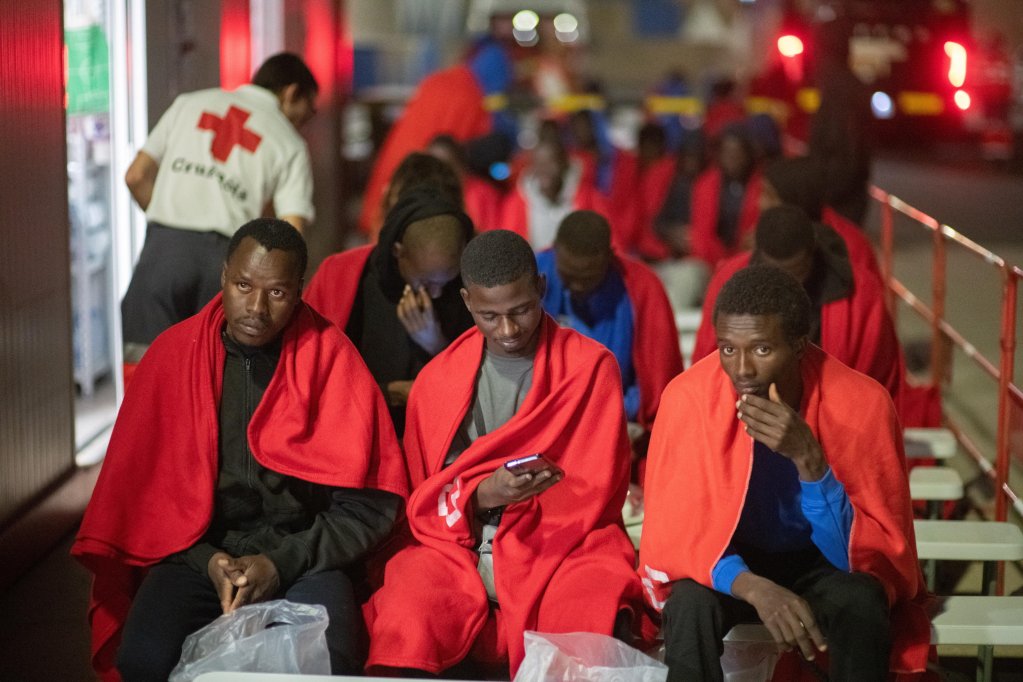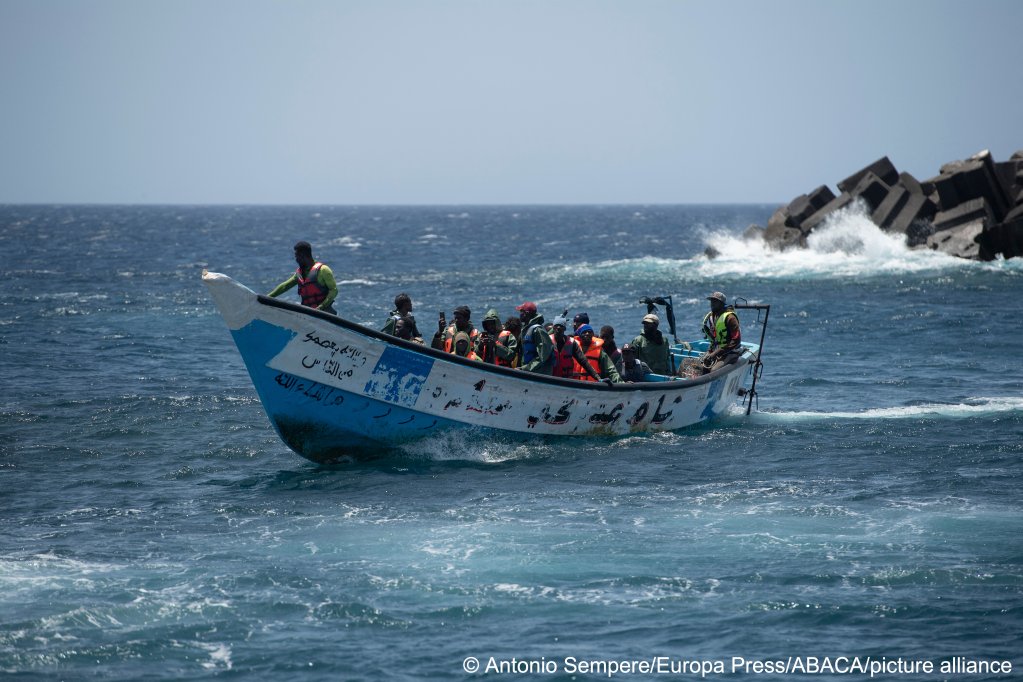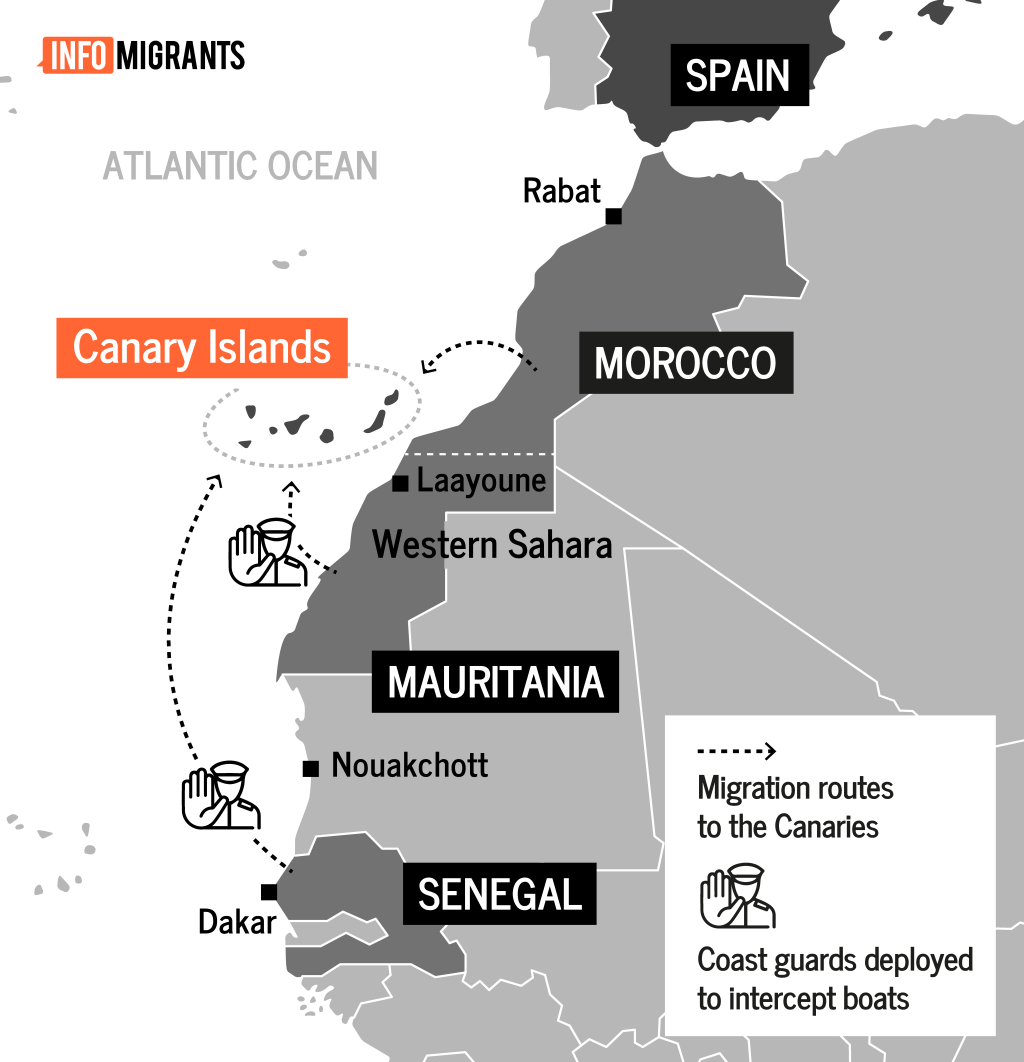The Canary Islands have requested more support from Frontex in light of a projected rise in migrant arrival numbers in the coming months. The Spanish archipelago has also called on the European Commission to lend its regional government a greater say in decisions regarding the Frontex operations there.
The Canary Islands' government has submitted an official request to the European Commission for a "significant" increase in assistance by Frontex -- in particular in the shape of material assistance and human resources.
This comes as growing numbers of migrants are expected to reach the archipelago in the Atlantic in September -- before weather conditions turn more inclement.
Frontex itself said in it annual risk analysis report that geopolitical changes in the Sahel region could also come into play, as greater insecurity and a rise in autocratic governments throughout western Africa and beyond might push more people to seek new lives elsewhere, not to mention "environmental pressure, socioeconomic grievances, conflicts, rapid population growth, and weak governance," the document further notes.
According to the regional administration of the Canaries, Frontex' work on the islands is at the moment limited to working in the Temporary Foreigners' Assistance Centers, where they provide support to the National Police in identifying and interviewing migrants who arrive there.
Read Also Canary Islands: Deaths, arrivals and the ongoing debates over redistributing young migrants
Madrid must have a say in changes to Frontex deployment
The request by the Canaries for greater Frontex assistance, however, would have to be ratified and supported by the Spanish government in Madrid.
Spanish Interior Minister Fernando Grande-Marlaska remarked to this end that the EU's external border agency had "already acted in many ways" to help the islands.
The opposition Popular Party meanwhile claimed that the government had so far not shown proactive support for the motion; Grande-Marlaska denied those allegations.

Canaries seek coordination protocols with rescue missions
Earlier this year, the president of the Canary Islands, Fernando Clavijo, had already traveled once to Brussels in January to meet with the Commissioner for Home Affairs and Migration, Magnus Brunner, to request more help from the European Union in the face of thousands of unaccompanied migrant minors reaching the island group.
This time, the request comes as the EU's Directorate-General for Migration and Home Affairs (DG HOME) invited member states to an open consultation on how to update its regulations to better serve the needs of EU member states.
Taking advantage of this open consultation, the Canary Islands' government specifically requested more "aircraft, boats, radars, and other systems to improve maritime and border surveillance" to save lives.

Read AlsoSpanish court demands government explain measures for migrant minors
According to media reports, the Canary Islands' government would like the new DG HOME regulations to include "specific coordination protocols" with local services such as Maritime Rescue missions.
The archipelago's government is also calling for the individual regions of Spain to be allowed have more weight in decisions regarding the agency's deployment.
One of the deadliest migrant routes on earth
The Spanish government has been actively trying to curb migrant arrivals by working closely together with the governments of the main countries of departure, especially Mauritania, Senegal, and Gambia, funneling funds to north and west Africa to keep migrants at bay.
Although the number of migrant arrivals to the Canaries is generally declining due to these interventions, with a drop of nearly 47 percent of arrivals recorded to date this year, it remains one of the most popular migrant routes to Europe.

Read AlsoMauritania dismantles migrant smuggling network in major police operation
The Canary Islands route is also considered the deadliest migrant route in the world, with roughly one in six migrants drowning at sea before reaching their destination.
According to data collected by the NGO Caminando Fronteras, in the first five months of 2025, about 1,800 people died or went missing while trying to reach the island group on small boats or canoes known in West Africa as cayucos.
The vast majority of the victims had apparently departed from Mauritania, with over 1,300 deaths of Mauritanian nationals being recorded.
Read AlsoOver 1,800 died in 5 months while trying to reach Spain, says NGO
